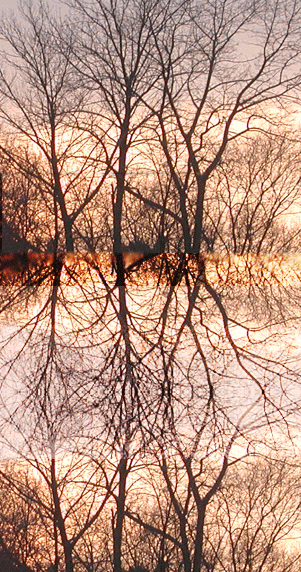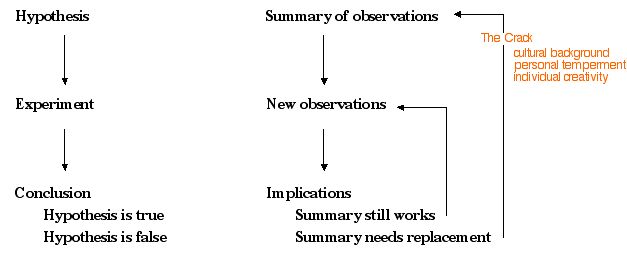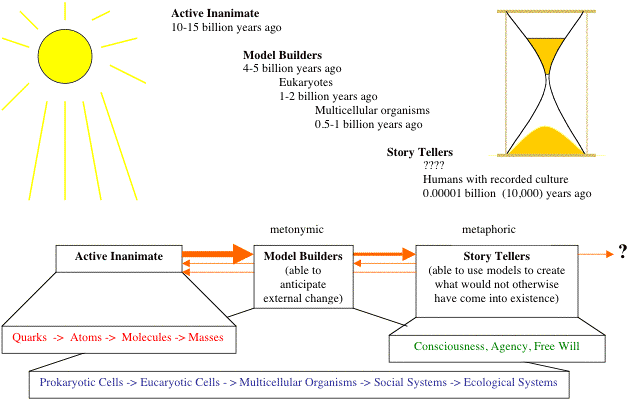



- individuals are members of invariant classes
- invariant classes (and membership of individuals in them) are defined by essences
- variation among individuals is of minor significance or irrelevant
Finalism
- change is toward "ever greater perfection"
- change reflects individual and personal experience (Lamarck)
- individuals vary in substantial and important ways
- classes represent groups of individuals with common ancestry
- classes change more or less smoothly and continously into other classes, with no sharp borders nor permanent characteristics
- "organization" is a description of the present, depends on past, may be different in future
- two factors contribute to that change:
- random variation
- differential reproductive success
- therefore change has some direction (expansion) and some shaping (differential reproductive success)
- would not come out the same way in detail if repeated, has no end state to be achieved .... is exploration of possible forms within some set of poorly defined constraints, is playful

